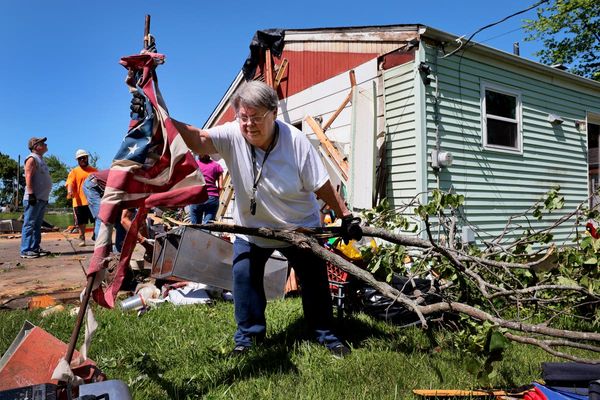
Mentally, Australia is finished with COVID-19. Social restrictions have dropped, travel is back on the cards and, for many, catching the virus has been similar to catching the flu.
But in reality, the pandemic is far from over. Australia is heading for its third Omicron wave thanks to a more infectious BA.4 and BA.5 variant of the virus. Today the Australian Technical Advisory Group on Immunisation (ATAGI) will meet to discuss expanding the fourth-dose rollout to include those aged under 65. On Sunday Australia’s death toll hit 10,000 — the vast majority of deaths recorded this year.
While ongoing COVID-19 jabs are likely, experts have raised concerns about the sustainability of rolling vaccine coverage, especially as Australians may be hesitant to step forward for additional doses.
Is a fourth dose surprising?
While governments have been wary to announce ongoing COVID-19 vaccines, it’s always been likely. COVID-19 is a virus and, like all viruses, is constantly mutating. The current first-generation vaccines have been designed to protect against the variant which emerged from Wuhan — a very different virus than what is spreading today, making the fourth jab akin to a second booster, rather than a new vaccine.
Second-generation vaccines, tailored for newer strains, are crucial, infectious disease expert Professor Paul Griffin tells Crikey.
“Vaccines give great protection, but it’s not going to be lifelong,” he said. “Whether the COVID-19 vaccine is going to be annual, more than that or less regularly will depend on what happens with the virus and the emergence of new variants and sub-variants.”
mRNA vaccines have a short shelf life and have to be carefully stored — making regular rollouts expensive and difficult to manage. Australia’s mRNA manufacturing centre in Victoria is set to be up and running from 2024, and Griffin warned giving more than one dose to every Australian every year was unfeasible.
This is why developing second-generation vaccines is so important, Griffin said, because they might protect people for longer. “We’re still early stages of this pandemic and there’s no sign that this is going to just go away by itself anytime soon,” he said.
“We need to be prepared to be able to combat this virus for the foreseeable future.”
But, he stressed, new therapies, pre-exposure injectable antibodies for the immunocompromised, and antiviral treatment drugs will all continue to make the virus more manageable.
Australians are slow to step up for boosters
Getting Australians to step forward for their third and fourth doses has been an issue. Boosters have been available for almost a year, yet just 70% of Australians have received one (in Indigenous populations, that number is 53.9%).
Fourth doses have been available since May for aged and disability care residents, people over 65, Aboriginal and Torres Strait Islanders over 50, and people with medical conditions, but just 58.7% of those eligible are quadruple-vaxxed. That number is only slightly higher for those in residential aged care settings at 65.7% — a major concern as winter sets in.
University of South Australia biostatistics expert Professor Adrian Esterman told Crikey for the general population three doses offered solid protection.
“Three doses for most people is optimal and, until second-generation vaccines come along, probably is sufficient,” he said.
“I think what’s happened is that those who are genuinely at risk would have gone and got their booster shots. For the fourth shot, the ones that are hanging back are those who perhaps aren’t at such high risk.”
But he warned complacency could be dangerous. While government messaging emphasises the risk is over, Esterman said Austalia wasn’t out of the woods yet — but could see the light at the end of the tunnel.
“We’ve got 95% of people who’ve been vaccinated and those who are vaccinated and have recovered from COVID-19 now have hybrid immunity, giving them some protection against even new sub-variants,” he said.
“The pandemic is ongoing but in Australia, we’re at the endgame.”






